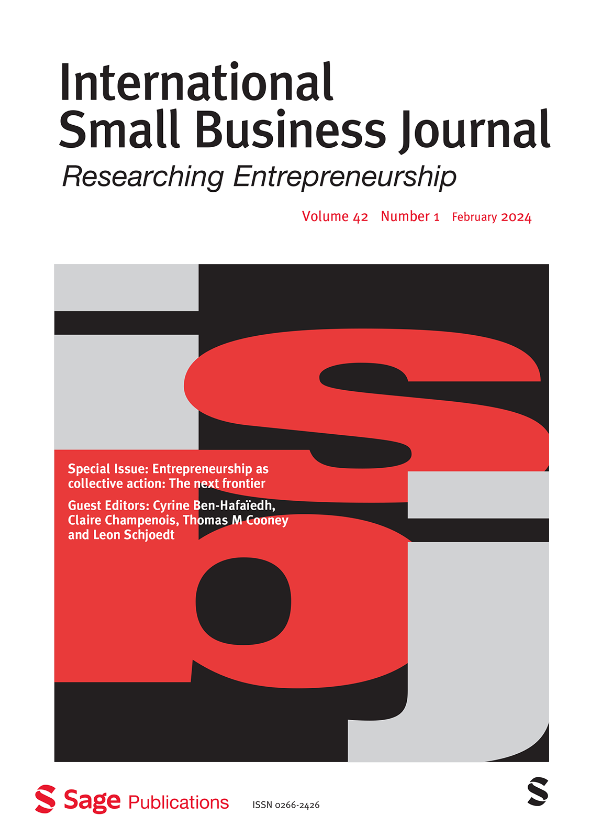Towards an entrepreneurial judgement theory: Building the cognitive microfoundations of entrepreneurial judgement
IF 3.9
2区 管理学
Q1 Business, Management and Accounting
International Small Business Journal-Researching Entrepreneurship
Pub Date : 2024-08-23
DOI:10.1177/02662426241269772
引用次数: 0
Abstract
We advance the judgement-based approach at the foundational level to establish cognitive microfoundations and boundary conditions as a formal theory of entrepreneurship – entrepreneurial judgement theory (EJT). We build upon philosophy’s concept of intentionality to define and conceptualise judgement as the determination and instigation of intentions. Entrepreneurship begins when, through entrepreneurial judgement, intentions are turned entrepreneurial, that is, towards the pursuit of new economic value, and ends when those intentions are turned away again. We elaborate the dynamics of this process, which includes cascading judgements across nested intentions. We conclude by distinguishing EJT from its close relative, entrepreneurial action theory, and by connecting entrepreneurial judgement more explicitly to contemporary psychology research.迈向创业判断理论:构建创业判断的认知微观基础
我们从基础层面推进基于判断的方法,建立认知微观基础和边界条件,作为创业的正式理论--创业判断理论(EJT)。我们以哲学中的意向性概念为基础,将判断定义为意向的决定和激发,并将其概念化。创业始于通过创业判断将意图转化为创业,即追求新的经济价值;创业止于这些意图再次转化为创业。我们详细阐述了这一过程的动态,其中包括对嵌套意图的层层判断。最后,我们将 EJT 与其近亲创业行动理论区分开来,并将创业判断与当代心理学研究更明确地联系起来。
本文章由计算机程序翻译,如有差异,请以英文原文为准。
求助全文
约1分钟内获得全文
求助全文
来源期刊
CiteScore
10.80
自引率
8.50%
发文量
49
期刊介绍:
The International Small Business Journal (ISBJ) is a leading peer-reviewed journal renowned for publishing high-quality original research papers on small business and entrepreneurship. It prioritizes research-based studies that contribute to theory development, critical understanding, and policy formulation related to small firms.
ISBJ papers encompass theoretical, methodological, and empirical studies from various disciplines and perspectives, aiming for research excellence in the field. The journal provides a critical forum for world-class contributions analyzing entrepreneurship and entrepreneurial behavior.
This refereed journal is valuable to academics, policymakers, analysts, government and business officials, small business representative bodies, and support agencies seeking to gain insights into the sector, trade, business institutions, and related matters.

 求助内容:
求助内容: 应助结果提醒方式:
应助结果提醒方式:


